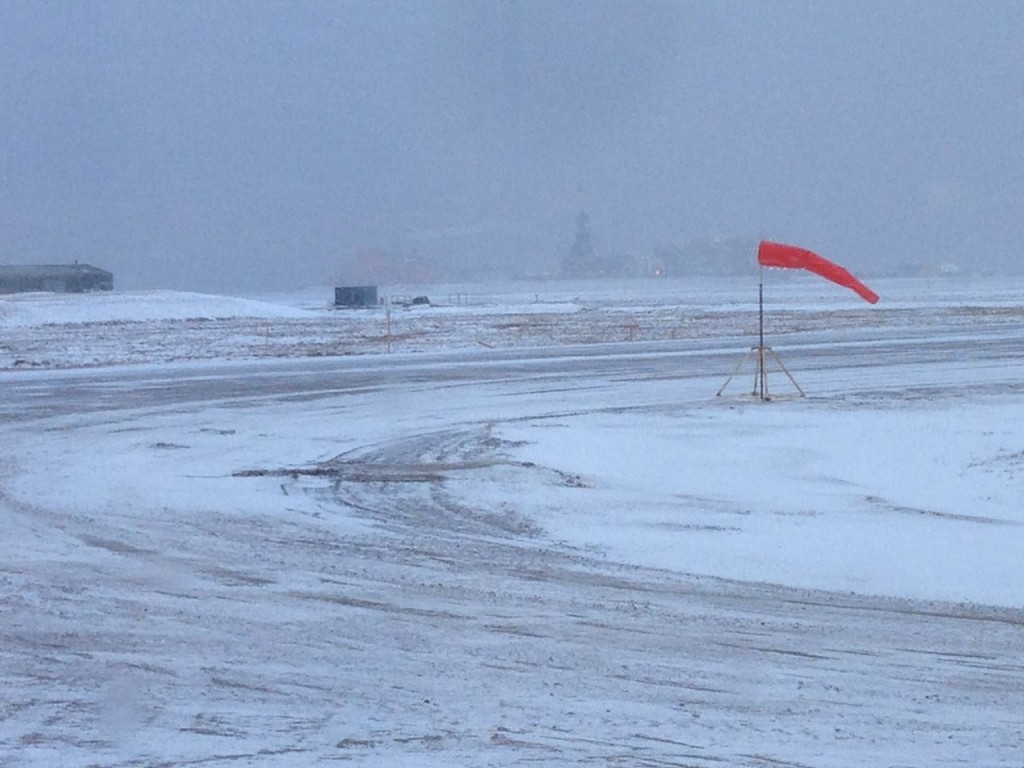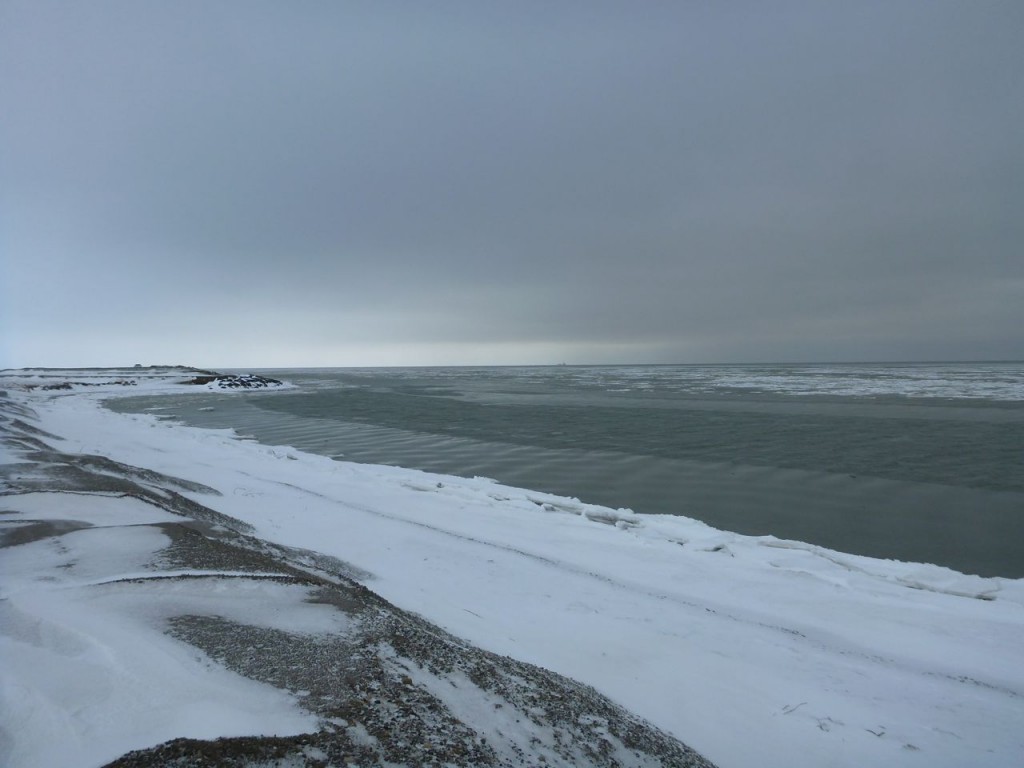It was another windy day at Oliktok Point. The weather station readout is currently showing sustained values in the 20 mph range, with gusts to 35 mph. The top speed of the DataHawks that we have with us is around 40 mph, and as a general rule, flight gets dicey when winds are above 18 mph or so. The biggest concern with flying in heavy winds is not necessarily that the aircraft will be out of control, but rather that the motor would not be able to supply enough power to get the aircraft upwind. Despite the conditions, we did attempt some flights throughout the day, including three short-duration conditions evaluation flights, and one longer duration sampling flight. I should say that I have substantial trust in Jack’s piloting skills and he certainly earned his money today – despite the gusty winds, no hard landings and no lost DataHawks!

I’m getting pretty tired of the horizontal wind sock, but based on the forecast, that may not change anytime soon.
Our one successful data collection flight of the day was somewhat exciting because it took us out over the near-shore ocean environment. Currently, that region is a mix of open water, slush, and some larger pieces of ice. This sort of environment is exactly one of the things that we were hoping to sample with the DataHawk because of the challenges associated with making measurements over this surface with traditional instrumentation. It was somewhat painful knowing that perfect conditions were located right offshore, but that the wind was preventing us from exploring further! We are hoping that tomorrow and Sunday will provide additional opportunities to fly, even if it means that we have to increase the aircraft airspeed setting to be able to combat the winds.
Even with limited flights, days pass by really quickly up here. Part of this may be the rapidly reducing sunlight (we’re currently losing around 10 minutes of daylight per day!), but in general, there’s just a lot to do. So far, my daily routine has looked something like:
600: Wakeup and workout
700: Breakfast and e-mail
830: Head out to the AMF3 to get ready for flight activities
900-1145: Measurement operations
1200-1230: Lunch
1230-1645: Measurement operations
1700-1730: Dinner
1730- 1900: Data evaluation, review of daily operations, weather forecast
1900-2000: Workout
2030-2200: Work, blog, etc.
A relatively simple and repeatable, but very full, day to be sure!

